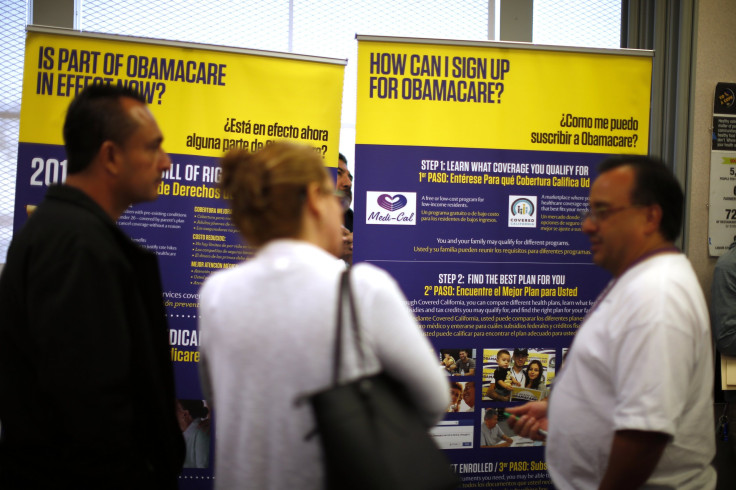Obamacare Subsidies: $750 Million Went To Ineligible Recipients, GOP Report Says

A quarter of a billion dollars in government subsidies to offset the cost of health insurance has been doled out to enrollees who were never deemed legally eligible for that financial assistance, according to a report compiled by Senate Republicans and released Monday. Those enrollees were later deemed ineligible for subsidies because of unverified immigration status, but the subsidies were never recouped, the report found.
Paid out in the form of advance tax credits, the subsidies were created as part of the Affordable Care Act, legislation that has gradually overhauled the U.S. healthcare landscape since its passage in 2010 after a long struggle to get enough votes. A signature achievement of U.S. President Barack Obama, Obamacare, as the law is nicknamed, has been criticized relentlessly by Republicans in Congress, who have repeatedly attempted to repeal the law in whole or in part. In early January, the president vetoed their most recent repeal effort, which came in the form of a reconciliation bill.
The report's findings were based on an inquiry by Sen. Ron Johnson, R-Wis., and chairman of the Senate Homeland Security and Governmental Affairs Committee. It found that the Centers for Medicare and Medicaid Services, which manages the healthcare law, distributed $750 million in subsidies to people who ultimately did not prove that they were citizens or legally present in the United States. A press release by the Senate committee criticized CMS' "wasteful practice of distributing cost assistance...without first verifying the enrollees’ " legal eligibility.
Under the Affordable Care Act, citizens and only a select group of immigrants, including green card holders, are eligible to buy health insurance through the exchanges established under Obamacare. The amount of government subsidies for which a person is eligible depends on his or her income, and they are available only to those who purchase insurance on those exchanges. As the report noted, "only U.S. citizens or individuals who are lawfully present in the United States qualify" for insurance coverage, and therefore the subsidies.
In March 2015, Johnson launched an inquiry into how CMS was verifying the eligibility of those who had received subsidies. According to its calculations, which the report noted were by "majority staff," CMS awarded tax credits to more than 500,000 people that it "later determined to be ineligible for cover and tax credits." The report defined "ineligible" as those who fail to "provide sufficient documentary evidence of eligibility," not those who were proven to be illegally residing in the United States.
The report also found that once those funds had been distributed, the Internal Revenue Service and CMS had no way to recoup them. "The agencies did not coordinate with each other, as evidenced by confusion between the agencies about which agency would take responsibility for recouping funds," it added. The IRS was ultimately responsible for taking back credits that had been improperly awarded, it said, but "it still lacks an effective plan."
When a person qualifies for health insurance subsidies, the government pays advance premium tax credits directly to insurance companies, an amount that depends a person's estimated income. The following year, when taxes are due, that person has to reconcile the amount paid in subsidies with the amount for which they were ultimately eligible.
If the person made more money than previously estimated and was thus entitled to less in subsidies, he or she has to pay the difference in taxes, and vice versa. In 2014, the IRS has estimated that only 300,000 people received the correct amount in tax credits, compared to some 1.6 million people who received too much.
The Senate committee's report relied in part on a test by the Government Accountability Office that ran from October 2013 to March 2014. The GAO submitted 12 undercover applications for marketplace insurance, online and by phone, that used false identities, including fake social security numbers, in order to test the processes for verifying citizenship and immigration status. It also used publicly available information, hardware and software to manufacture fake documents.
Of those dozen fake applicants, 11 ultimately received healthcare coverage and a total of roughly $30,000 in subsidies in the form of advance tax credits, even after going through subsequent reviews that involved submitting more falsified documents. In two cases, the marketplace said that two of the fake applicants' proof of citizenship or immigration status had been verified.
That GAO report ultimately determined that throughout the process of applying for health insurance, the process of submitting documents for review was "inconsistent," at least among the fake applications it submitted.
© Copyright IBTimes 2025. All rights reserved.






















